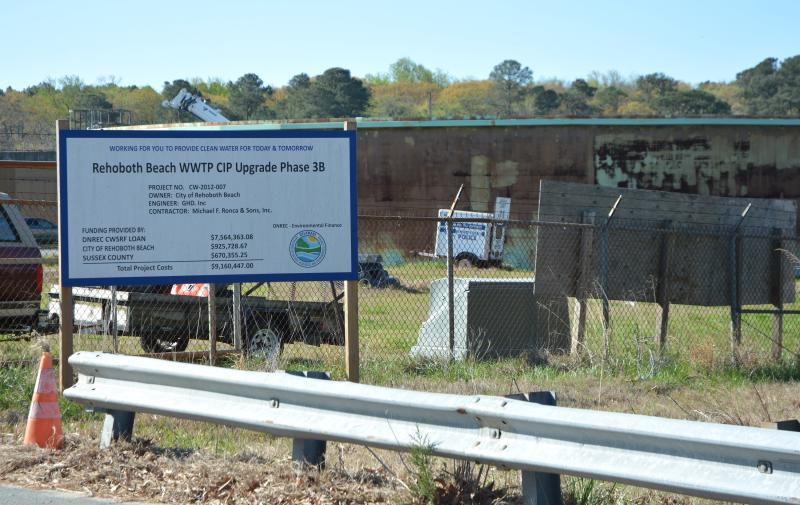Rehoboth nearing final phase of treatment plant upgrades
The Rehoboth Beach wastewater treatment plant is nearing the completion of another milestone related to facility improvements.
During a meeting April 17, Stephen Clark, senior engineer for the city’s consultant GHD, said if everything goes as planned, the new dewatering building will be up and running by early June. The purpose of this project was to change how the plant treats and manages biosolids, he said, explaining that the plant is shifting from hauling and spray irrigation to a drying method that produces a much more concentrated form of waste that is much easier to haul away.
Clark said there have been about $329,000 worth of change orders during the Phase 3B construction, which puts the total cost of the project at about $7.97 million. Most of the change orders were the result of two items, he said, pointing to the need for additional helical piles ($111,000) and ventilation improvements ($92,000).
If the timetable holds true, the project will be done about 10 months later than originally expected. Clark said those delays were related to figuring out how to best install and locate the additional helical piles.
The project will soon move into Phase 4, the last scheduled for the plant’s immediate future. A lot of that work is focused on the administrative side of the treatment plant.
Clark said the administrative building will get a new laboratory, HVAC system, roof, windows and doors. Also, he said, there will be electrical upgrades throughout the plant, the large storage tanks will be repaired and painted, site-wide paving and grade restoration will occur, and a fiber optic communications loop will be installed.
The design for the Phase 4 work is complete, and the construction permit has been awarded, said Clark. The project is expected to go to bid this month, with a presentation of those bid results to city commissioners in August, he said.
It’s expected that construction will start this fall and finish in fall 2027, said Clark.
The completion of Phase 3B improvements ($2.4 million) and the beginning of Phase 4 improvements ($2.3 million) are included in the city’s capital improvement plan as part of the Fiscal Year 2026 budget, which began April 1. In future years, the CIP has no expenses for Phase 3B because it should be completed, but Phase 4 has about $12 million worth of expenses over the next two fiscal years – $6 million in FY27 and $5.7 million in FY28.
The city has been working on upgrading the wastewater treatment plant for years, beginning with the ocean outfall, which went live in May 2018 and cost about $43 million. After the outfall work was completed, and in addition to Phase 3B and Phase 4, the city completed another $12 million worth of infrastructure improvements. Those included $9 million for electrical work and equipment replacement in the headworks building; $1.3 million to replace mixers and motors in oxidation ditches; $1.3 million for structural rehabilitation to the headworks building; and $400,000 for pipe replacement.
Unlike the previous improvement phases, which were paid for through a loan, Phase 4 improvements will be paid for with cash by the city from an expected increase in wastewater rates. In theory, this should save the city millions in the long run because of a cost-sharing agreement with Sussex County that was signed in 2017. Under that agreement, the county pays 42% of debt service costs, the city pays 52% and North Shores picks up what remains. The same agreement has operations and maintenance costs, a category these improvements fall under, paid for based on flow.
Commissioner Craig Their said a recent audit of the flow showed the city contributed roughly 36% to the total, which means the city would be on the hook for about $5 million of the $14 million phase, instead of $7.3 million.
Chris Flood has been working for the Cape Gazette since early 2014. He currently covers Rehoboth Beach and Henlopen Acres, but has also covered Dewey Beach and the state government. He covers environmental stories, business stories and random stories on subjects he finds interesting, and he also writes a column called Choppin’ Wood that runs every other week. He’s a graduate of the University of Maine and the Landing School of Boat Building & Design.






















































